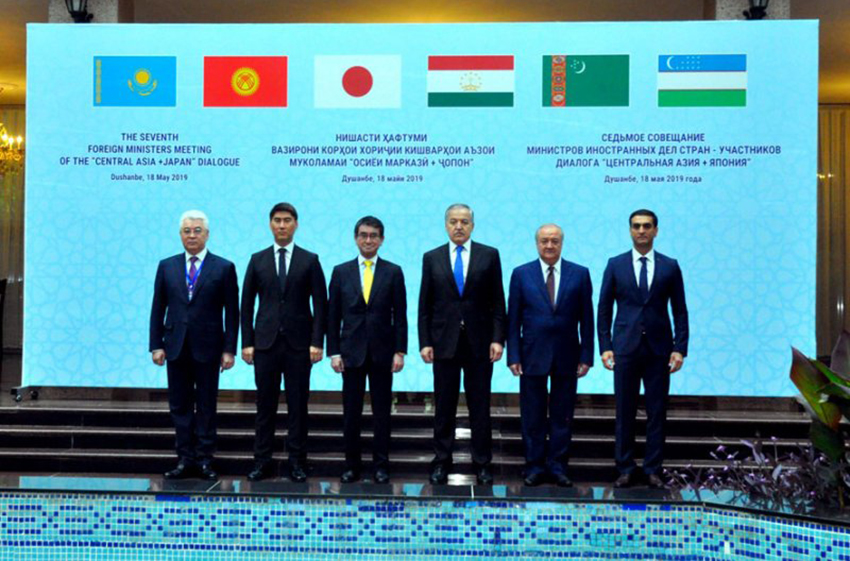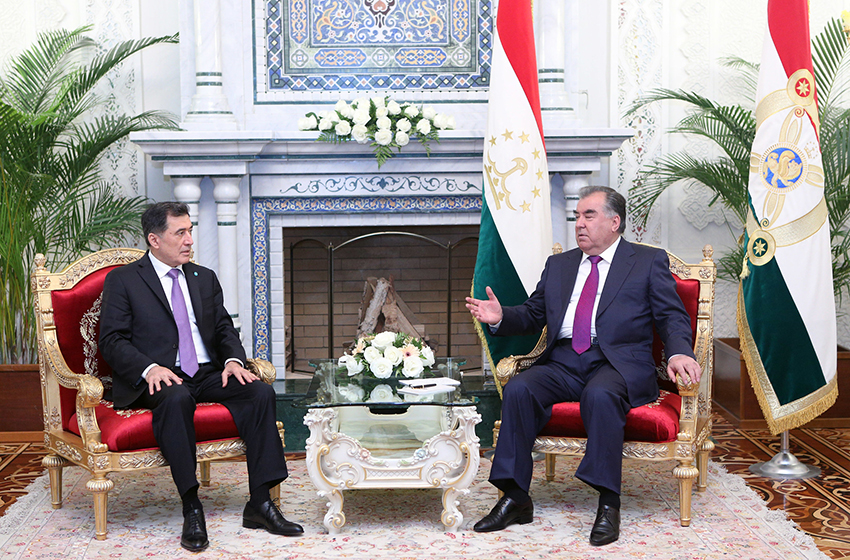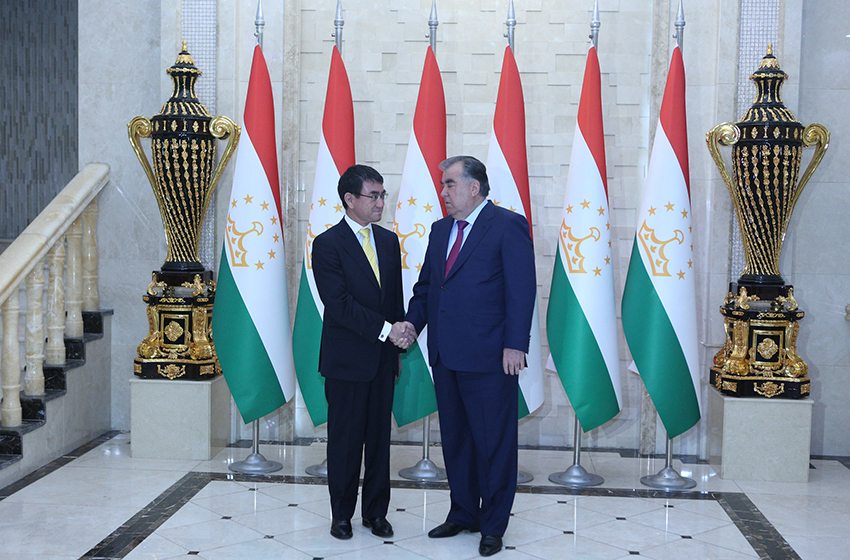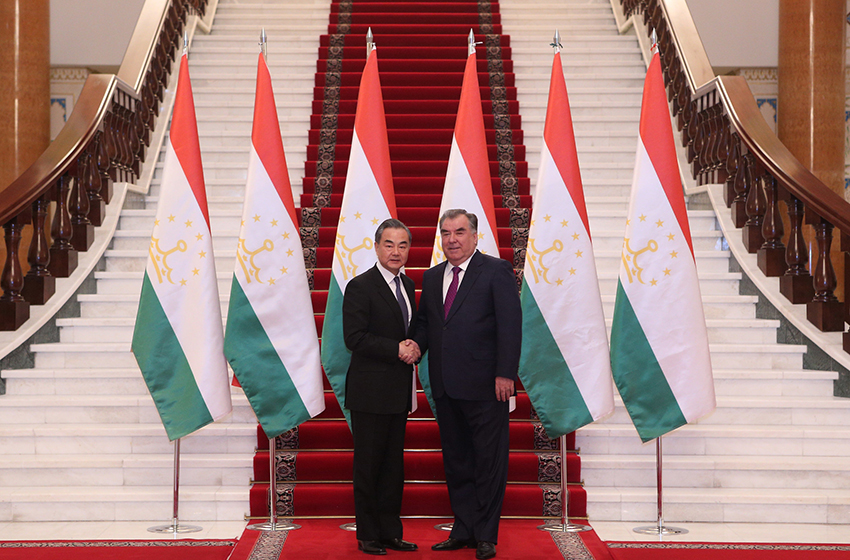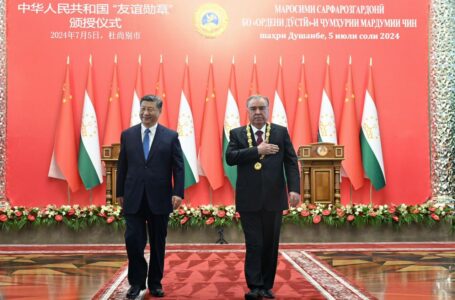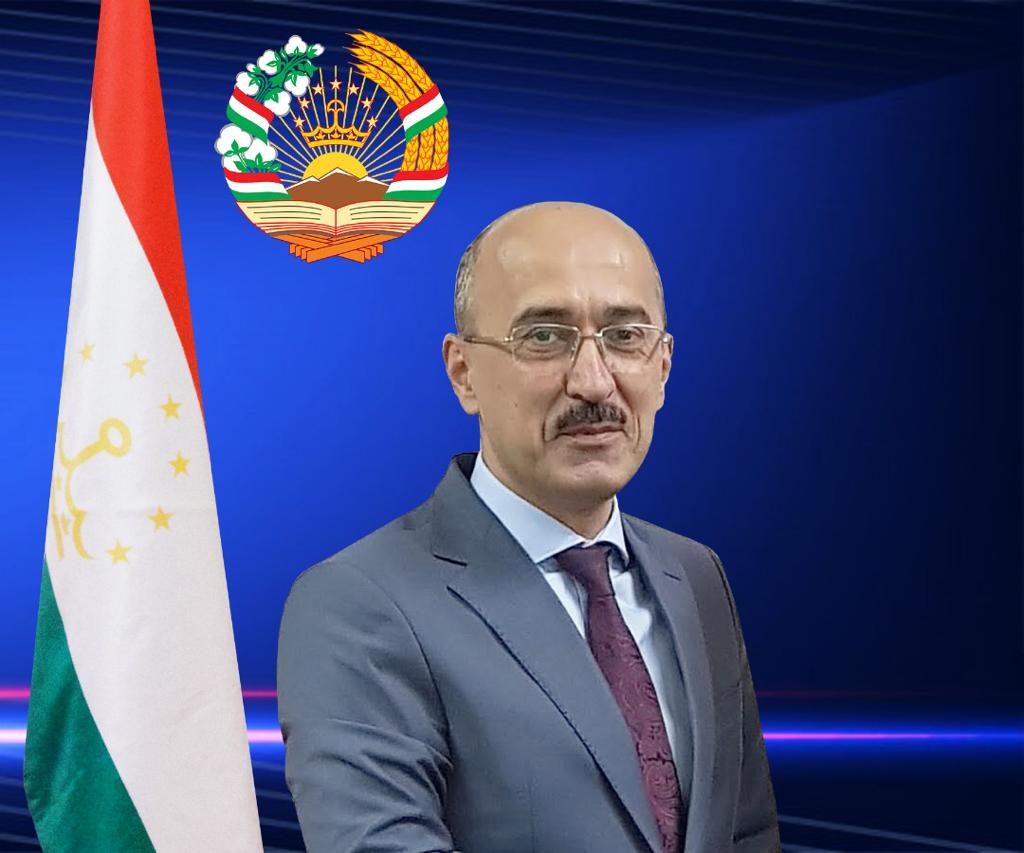
KUALA LUMPUR, June 14 — Tajikistan is aiming to further strengthen ties with member states of the Shanghai Cooperation Organisation (SCO), ensuring regional peace and stability and promoting economic cooperation during its 2020-2021 chairmanship of the SCO.
Tajikistan’s Ambassador to Malaysia Ardasher Qodiri said in line with its slogan “20 years of the SCO: cooperation for stability and prosperity”, Tajikistan is determined to use its chairmanship to strengthen friendship and good-neighbourliness between the SCO member states to maintain peace, security and stability in the region.
It is also aiming to increase cooperation in trade and economic, cultural and humanitarian spheres, strengthening the image and international positioning of the SCO and expanding the mechanisms of interaction, he said.
“To maintain peace, security and stability, it is planned to strengthen practical cooperation in the fight against terrorism, separatism and extremism, drug trafficking, cyber crime, the spread of radical ideology and trans-border organised crime.
“The Tajik side had also initiated the advancement of the issue of creating a separate SCO anti-drug body in order to mobilise forces and means into a single body to effectively counter drug trafficking,” he said in a statement to Bernama.
Tajikistan took over the SCO chairmanship from Russia on Nov 10, 2020. The country’s chairmanship coincides with the 20th anniversary of the establishment of the Organisation.
According to Qodiri, Tajikistan’s President had, on October 8, 2020, approved the Concept of the Chairmanship where in accordance with the Concept, a Plan of Major Measures and a Plan of Domestic Measures of the Chairmanship have been developed, which cover over 100 events.
SCO is a permanent intergovernmental international organisation formed on June 15, 2001, in Shanghai, China by Kazakhstan, China, Kyrgyzstan, Russia, Tajikistan and Uzbekistan.
It was preceded by the Shanghai Five mechanism. The organisation has two permanent bodies – the SCO Secretariat in Beijing and the Executive Committee of the SCO Regional Anti-Terrorist Structure (RATS) in Tashkent.
Today, it comprises eight member states. Besides the six founding member states, India and Pakistan are also SCO member states.
Among SCO main goals are strengthening mutual trust and good-neighbourliness between the member states, promoting their effective cooperation in the political, trade, economic, scientific, technical and cultural fields, as well as in education, energy, transport, tourism, environmental protection, joint provision and maintenance of peace, security and stability in the region; advancing towards the creation of a democratic, just and rational new international political and economic order.
The total area of the SCO member states covers more than 30 million square kilometres, which is equal to 3/5 of the area of Eurasia, and the population of 3.2 billion people makes up 40 per cent of the world’s population, providing more than 20 per cent of the world’s economy.
SCO also counts four observer states, namely Afghanistan, Belarus, Iran and Mongolia, while it currently has six dialogue partners. They are Azerbaijan, Armenia, Cambodia, Nepal, Turkey and Sri Lanka.
“The SCO is regarded by many Western experts as an attempt to create a counterweight to NATO. However, according to its fundamental principles, the organisation is not aimed against third countries.
“By uniting four nuclear powers – half of the world nuclear club – the SCO format is an additional pillar of the system for maintaining global strategic stability,” he said.
Qodiri said the 75th session of the UN General Assembly had, on last March 25, adopted a resolution on cooperation between the UN and the SCO, where the United Nations (UN) acknowledges the constructive role of the organisation in securing peace and security and recognises the SCO as a crucial regional organisation.
He had also highlighted on the importance of cooperation between the SCO and ASEAN, as countries in both organisations are economically and culturally interconnected.
“SCO and the ASEAN regions also have enormous economic potential, resource base, large skilled labour force and a huge market for goods and services, noting that combining their efforts can be mutually beneficial and mutually complementary,” he said.
According to Qodiri, the SCO also attached great importance to the areas of social and humanitarian cooperation, developing cooperation in the fields of education, culture, science, sports and tourism.
He added that in a short period of its existence, the SCO has established itself at the global level, continuing the practice of cooperation with international organisations and practicing joint high-level events with such organisations as the UN and ASEAN.
“It should be emphasised that the SCO is not a military bloc or a military-political structure. The mechanism of interaction between the SCO member states is limited to the security, economy, humanitarian sphere and, in accordance with its normative documents, provides for the non-use of force or the threat of force and excludes the conduct of military.
He pointed out that the past decades of the Organisation’s activity clearly demonstrate that the SCO does not strive to become an economically integrated community over national governing bodies.
The mechanisms for ensuring security and stability, developed within the organisation, and the legal and regulatory framework for cooperation based on mutual trust, ensure sustainable stability of further coexistence.
— BERNAMA


